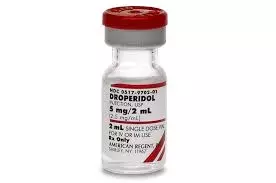- Home
- Medical news & Guidelines
- Anesthesiology
- Cardiology and CTVS
- Critical Care
- Dentistry
- Dermatology
- Diabetes and Endocrinology
- ENT
- Gastroenterology
- Medicine
- Nephrology
- Neurology
- Obstretics-Gynaecology
- Oncology
- Ophthalmology
- Orthopaedics
- Pediatrics-Neonatology
- Psychiatry
- Pulmonology
- Radiology
- Surgery
- Urology
- Laboratory Medicine
- Diet
- Nursing
- Paramedical
- Physiotherapy
- Health news
- Fact Check
- Bone Health Fact Check
- Brain Health Fact Check
- Cancer Related Fact Check
- Child Care Fact Check
- Dental and oral health fact check
- Diabetes and metabolic health fact check
- Diet and Nutrition Fact Check
- Eye and ENT Care Fact Check
- Fitness fact check
- Gut health fact check
- Heart health fact check
- Kidney health fact check
- Medical education fact check
- Men's health fact check
- Respiratory fact check
- Skin and hair care fact check
- Vaccine and Immunization fact check
- Women's health fact check
- AYUSH
- State News
- Andaman and Nicobar Islands
- Andhra Pradesh
- Arunachal Pradesh
- Assam
- Bihar
- Chandigarh
- Chattisgarh
- Dadra and Nagar Haveli
- Daman and Diu
- Delhi
- Goa
- Gujarat
- Haryana
- Himachal Pradesh
- Jammu & Kashmir
- Jharkhand
- Karnataka
- Kerala
- Ladakh
- Lakshadweep
- Madhya Pradesh
- Maharashtra
- Manipur
- Meghalaya
- Mizoram
- Nagaland
- Odisha
- Puducherry
- Punjab
- Rajasthan
- Sikkim
- Tamil Nadu
- Telangana
- Tripura
- Uttar Pradesh
- Uttrakhand
- West Bengal
- Medical Education
- Industry
Droperidol effective for antiemetic prophylaxis in morphine-based intravenous patient-controlled analgesia

Droperidol effective for antiemetic prophylaxis in morphine-based intravenous patient-controlled analgesia suggests a new study published in the BMC Anesthesiology.
There are limited real-world data regarding the use of droperidol for antiemetic prophylaxis in intravenous patient-controlled analgesia (IV-PCA). This study aimed to evaluate the antiemetic benefits and sedation effects of droperidol in morphine-based IV-PCA.
Patients who underwent major surgery and used morphine-based IV-PCA at a medical center from January 2020 to November 2022 were retrospectively analyzed. The primary outcome was the rate of any postoperative nausea and/or vomiting (PONV) within 72 h after surgery. Propensity score matching was used to match patients with and without the addition of droperidol to IV-PCA infusate in a 1:1 ratio. Multivariable conditional logistic regression models were used to calculate adjusted odds ratios (aORs) with 95% confidence intervals (CIs).
Results
After matching, 1,104 subjects were included for analysis. The addition of droperidol to IV-PCA reduced the risk of PONV (aOR: 0.49, 95% CI: 0.35–0.67, p < 0.0001). The antiemetic effect of droperidol was significant within 36 h after surgery and attenuated thereafter. Droperidol was significantly associated with a lower risk of antiemetic uses (aOR: 0.58, 95% CI: 0.41–0.80, p = 0.0011). The rate of unintentional sedation was comparable between the patients with (9.1%) and without (7.8%; p = 0.4481) the addition of droperidol. Postoperative opioid consumption and numeric rating scale acute pain scores were similar between groups.
The addition of droperidol to IV-PCA reduced the risk of PONV without increasing opiate consumption or influencing the level of sedation. However, additional prophylactic therapies are needed to prevent late-onset PONV.
Reference:
Tan, J.Q., Wu, HL., Wang, YC. et al. Antiemetic prophylaxis with droperidol in morphine-based intravenous patient-controlled analgesia: a propensity score matched cohort study. BMC Anesthesiol 23, 351 (2023). https://doi.org/10.1186/s12871-023-02319-2
Keywords:
Droperidol, effective, antiemetic, prophylaxis, morphine-based, intravenous, patient-controlled, analgesia, BMC Anesthesiology, Tan, J.Q., Wu, HL., Wang, Y
Dr. Shravani Dali has completed her BDS from Pravara institute of medical sciences, loni. Following which she extensively worked in the healthcare sector for 2+ years. She has been actively involved in writing blogs in field of health and wellness. Currently she is pursuing her Masters of public health-health administration from Tata institute of social sciences. She can be contacted at editorial@medicaldialogues.in.
Dr Kamal Kant Kohli-MBBS, DTCD- a chest specialist with more than 30 years of practice and a flair for writing clinical articles, Dr Kamal Kant Kohli joined Medical Dialogues as a Chief Editor of Medical News. Besides writing articles, as an editor, he proofreads and verifies all the medical content published on Medical Dialogues including those coming from journals, studies,medical conferences,guidelines etc. Email: drkohli@medicaldialogues.in. Contact no. 011-43720751


